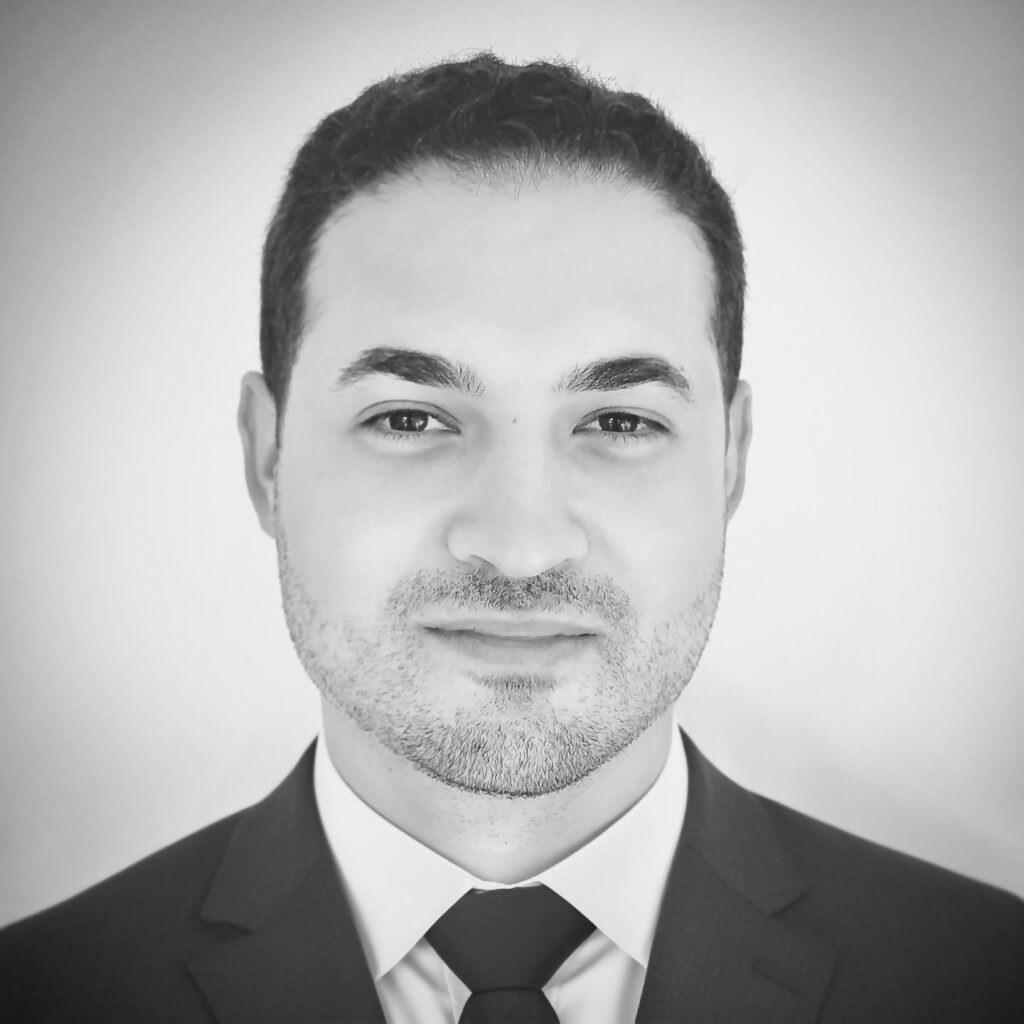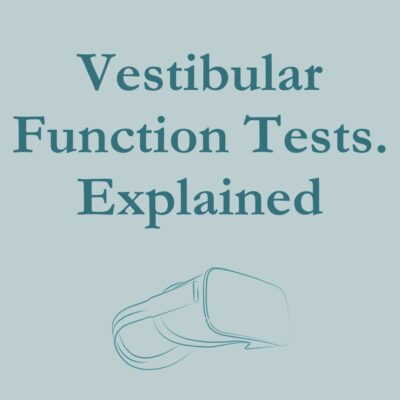So, what are Vestibular Function Tests (VFTs)?
These are tests to check how well the inner ear balance organs / vestibular system is working. They can identify if there is any weakness or asymmetry between the two sides. They can also be used to look for specific conditions / diagnoses.
I want to stress that these tests are NOT the most important part of a detailed & comprehensive vestibular assessment, and only form one part of it.
Interpretation by an experienced Vestibular Scientist and then requesting Doctor is required, as there are many ‘technical issues’ which can affect the results.
Personally, I always review the ‘raw traces’ myself to decide if any abnormal results are relevant or not.
Let’s go through some of the more common tests…
Videonystagmography (VNG)
This test measures both voluntary and involuntary eye movements, in light and in complete darkness. For example, you will be asked to follow a light as it moves, and then disappears. Alternatively, your eye movements will be measured as you are moved.
As the inner ear balance organs help to stabilize and control our eye movements, VNG can be used to identify vestibular weakness and asymmetry, as well as signs suggesting a more neurological issue.
Tests may be done when stationary, and when on a rotating chair.
Video Head Impulse Testing (vHIT)
This test measures a reflex between the ears and the eyes, called the Vestibulo-Ocular Reflex (VOR). This reflex stabilizes vision during head movement (a bit like image stabilisation in a camera).
Special goggles are worn to measure the reflex. You are asked to look at a target on the wall, whilst your head is briskly turned small amounts to each side.
The goggles measure how fast the head Is turning, and with a high-speed camera how fast the eyes are moving in the opposite direction.
This test has the ability to even identify compensated vestibular weakness, which is not possible from the examination alone.
Caloric Testing
The Caloric Response was described by Robert Bárány in the early 20th century, and for which he won the Nobel Prize.
The test also utilizes the VOR. Whilst wearing special video goggles to measure eye movements, warm or cool water / air is delivered into the ear canals, one at a time, to trigger the reflex, and then the measured responses from each side are compared.
During testing one can sometimes feel vertiginous and nauseous.
Vestibular Evoked Myogenic Potentials (VEMPs)
These tests try to assess different parts of the inner ears, the ‘Utricle’ & ‘Saccule’. These ‘sensors’ can actually be stimulated by loud SOUND, resulting in activation of ear mediated reflexes… the Vestibulo-Ocular & Vestibulo-Colic reflexes.
During testing, loud sounds are played to the ears, and due to these reflexes, muscle responses at the eyes and neck can be measured.
The previous list is not exhaustive, and there are other tests which are also sometimes performed.
It is very important to STOP any medication which can affect the vestibular system prior to testing, as these can interfere with the results.
For my private patients seen at all sites, when appropriate and required, I can arrange for detailed Vestibular Function Tests through trusted, third-party providers, both within and outside central London. I can then go through the results in detail with you, taking time to explain their interpretation and relevance to your symptoms / condition.
DISCLAIMER: This blog post is meant for medical education purposes ONLY and DOES NOT constitute individual clinical advice. ALWAYS seek medical advice from your treating doctor, when managing health conditions. If you would like to arrange for a private medical consultation with Dr Shaw, Consultant Audiovestibular Physician, then information on booking an appointment can be found at TheDizzySpecialist.com/contact. Face to face and virtual consultations available.
Dr Benjamin Shaw | Audiovestibular Consultant Physician | TheDizzySpecialist.com
I am an Audiovestibular Consultant Physician, based in London. I am a highly experienced and specialised Medical Doctor, who accurately diagnoses and effectively manages dizziness, vertigo, balance disorders, hearing loss & tinnitus. I am also a committed advocate for patients with these debilitating symptoms and create healthcare-related educational content, with the aim of empowering patients to better understand and manage their conditions.

